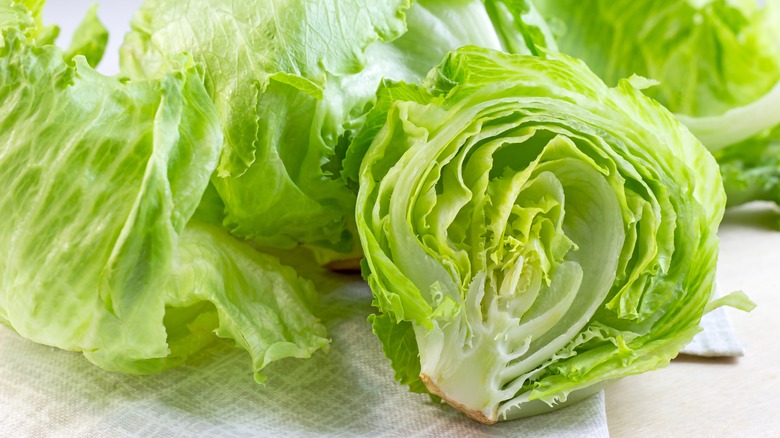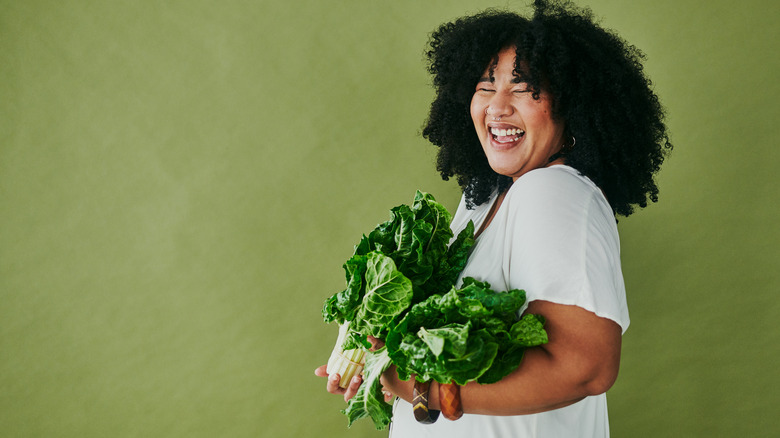You May Want To Avoid This Type Of Lettuce At The Whole Foods Salad Bar
Salads are a great way to get in your daily recommended servings of vegetables — while also filling you up so you don't overindulge in unhealthy foods later. While you might not see the benefits of eating more greens now, you might notice your improved health as you age. A 2016 meta-analysis in JRSM Cardiovascular Disease found that eating green, leafy vegetables (such as bok choy, broccoli, and kale) can reduce your risk of cardiovascular disease by 16%. After all, populations that consume more greens tend to have lower rates of diabetes, cardiovascular disease, and cancer. A 2017 systematic review in the International Journal of Epidemiology suggested that almost 8 million deaths worldwide could be attributed to low intake of fruits and vegetables.
The salad bar at Whole Foods gives you plenty of options to fill your plate with fruits and vegetables. What forms a solid base for a good salad is the leafy green lettuce. Some add more flavor while others add serious nutrition. According to Everyday Health, you should probably bypass iceberg lettuce as the base of your salad.
Iceberg lettuce has little nutrition
While iceberg lettuce might be one of the most popular bases for many prepared salads in the store, it doesn't give you many vitamins or minerals. More than a cup of iceberg lettuce (100 grams) has just 14 calories, but it offers little nutrition (aside from 139 milligrams of potassium). On the plus side, iceberg lettuce is more than 95% water. This can be helpful if you're trying to keep your hydration levels up.
There's nothing wrong with iceberg lettuce. It might be fine to add a little crunch and moisture to your sandwich — although butter lettuce could give you that same crunch while adding a little more vitamin A. And if iceberg lettuce is the only option for a salad when you're invited for dinner, you don't have to turn it away. Just know that if you have a choice at the Whole Foods salad bar, don't choose iceberg lettuce. If you want more nutritional bang for your buck, what's the best options for lettuce at the salad bar?
Kale is still king
According to Everyday Health, the greener the leaf, the healthier the lettuce. A one-cup serving of kale gives you more than half your daily recommended amount of vitamin A as beta carotene, which can help with vision and your immune system. You'll also get more than 20% of your vitamin C in kale to reduce your risk of cancer and support your collagen levels. Vitamin K helps prevent blood clots and hip fractures, and kale gives you more than two-thirds of your daily amounts. If salad bar kale seems a little tough for your liking, let it sit for a while in your favorite healthy salad dressing to soften it up.
Perhaps kale might not be your favorite. Spinach is another healthy green that can form a nice base for your salad. A 100-gram serving of spinach is just 22 calories but also provides almost 3 grams of protein. Spinach also gives you a good amount of iron, one-third of your vitamin C, and vitamins A and K.



